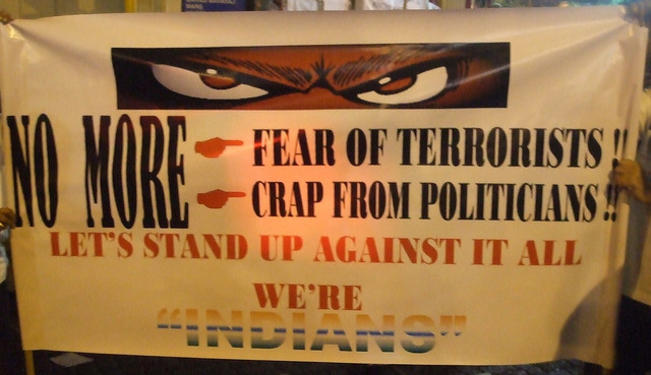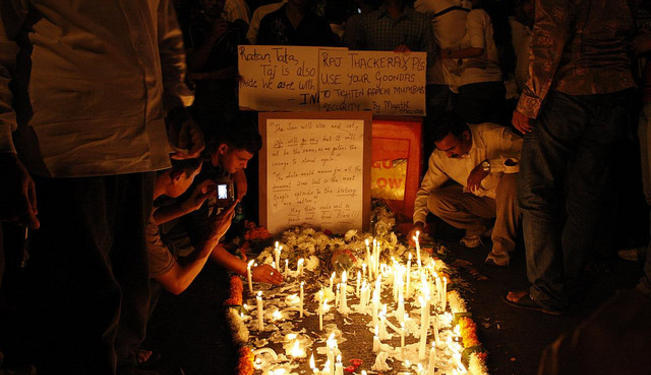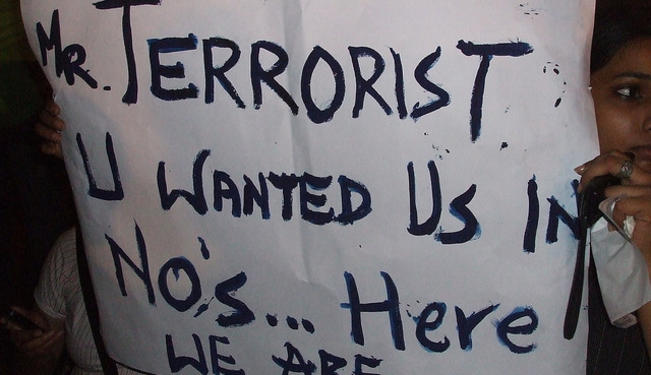
by Preeti Lourdes John and Nishtha Chugh
Background
Mohammed Ajmal Amir Kasab, a Pakistani national involved in the November 2008 Mumbai terror attacks that claimed over 160 lives and left more than 300 injured, was hanged to death on 21 November 2012 for his role in the attack. The lone terrorist to be captured alive from among a group of ten – all of whom were affiliated with Lashkar-e-Taiba, a staunchly anti-India militant organisation based in Pakistan, Kasab faced a two-year trial and was convicted by a lower court of a number of offences, including waging war against India, murder and the possession of explosives.
On 26 November 2008, the ten gunmen docked at Mumbai’s Colaba shores in inflatable boats and dispersed to different locations to launch attacks at prominent and busy landmarks in the city that included two five-star hotels, an interstate bus terminus, a hospital and a Jewish community centre. The attackers also killed several high-ranking security officials including the city’s assistant commissioner of police and anti-terror squad chief. Kasab, then a fresh-faced 19 year-old, was captured on camera indiscriminately firing AK-47 assault rifle with an accomplice at Chhatrapati Shivaji terminus and instantly became the face of the most vicious terrorist attack India had yet faced.
Capturing international attention Kasab’s trial was replete with denials, histrionics and frequent breakdowns. Kasab’s initial testimony following his capture, eyewitness accounts, surveillance camera footage collected from different sites and wire communications intercepted by the Indian intelligence agencies during the attacks were presented as conclusive evidence that the terrorist plot was not only hatched on Pakistani soil but also pointed to the involvement of the ISI, its intelligence arm.
Kasab claimed that the Mumbai attacks were meant to replicate the 9/11 attacks and Islamabad’s Marriot hotel blast in order to draw international attention to the ‘cause’ – the Kashmir conflict. In the end, Kasab challenged the death penalty awarded to him by the trial court but both the Bombay High Court and the Supreme Court of India upheld the verdict.
Why is it releavant: Indo-Pakistan relations and the Kashmir factor
The 2008 Mumbai terror attacks were among the many recent Islamist-perpetrated attacks to occur in the country over the past few years. A significant number of them, including the most audacious one on the Indian parliament in 2001, have been blamed on Lashkar-e-Taiba, which is now banned in the US, India, Pakistan, the European Union, Russia and Australia among several states. While varied in degrees of severity and none matching the devastation of the Mumbai attacks, the origination and agenda of the threat remains common. As was demonstrable by the terrorists’ knowledge of the targets and commando-style preparedness, the attacks were not only meticulously planned but also revealed an intricately deceptive intelligence gathering operation replete with reconnaissance missions in India. David Coleman Headley, a Chicago based Pakistani-American and Lashker operative arrested in 2009, pleaded guilty to conducting the reconnaissance missions at the behest of his ISI handlers.
Anti-India propaganda has sustained since 1947 with Pakistan being repeatedly accused of aiding terrorist activities against its neighbour. The Kashmir dispute has singularly characterised Pakistan’s policy towards India and has been the mainstay of nearly all the bilateral dialogues and peace initiatives. At the home front too, the issue coupled with anti-India rhetoric has been a formidable uniting force in political sphere and galvanised radical elements to wage jihad in order to ‘liberate’ Muslim brethren in the Indian-administered Kashmir and often derailing peace intiatives. Pakistan’s intelligence agency in particular has been repeatedly blamed, often with incriminating evidence, for colluding with extremist outfits to support, train and fund militant strikes in Indian cities. Consequently, Kasab and his fellow gunmen are believed to be the products of the same anti-India jihadi indoctrination.
For more than 10 years, Fair Observer has been free, fair and independent. No billionaire owns us, no advertisers control us. We are a reader-supported nonprofit. Unlike many other publications, we keep our content free for readers regardless of where they live or whether they can afford to pay. We have no paywalls and no ads.
In the post-truth era of fake news, echo chambers and filter bubbles, we publish a plurality of perspectives from around the world. Anyone can publish with us, but everyone goes through a rigorous editorial process. So, you get fact-checked, well-reasoned content instead of noise.
We publish 2,500+ voices from 90+ countries. We also conduct education and training programs on subjects ranging from digital media and journalism to writing and critical thinking. This doesn’t come cheap. Servers, editors, trainers and web developers cost money.
Please consider supporting us on a regular basis as a recurring donor or a sustaining member.
Support Fair Observer
We rely on your support for our independence, diversity and quality.
Will you support FO’s journalism?
We rely on your support for our independence, diversity and quality.




